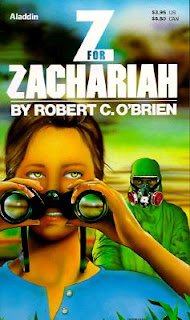Heroism and True Heroes, Part 2
Last time, I wrote about my definition of a true hero and some examples of
characters who aren't true heroes (at least in the stories that we have of them).
Today I want to talk about someone who is. I'm going to choose Bilbo Baggins
because his status as hero was what started this exploration.
Let's look at the first half of my definition of a hero:
doing the right thing even when the easy path is open or something you've
chosen in the past. The shining moment in which Bilbo does this is when he is
in the goblin caves with Gollum, wearing the Ring and holding the sword Sting.
Bilbo knows that Gollum would kill him without a second thought if their situations
were reversed. He also knows that Gollum has already been a threat to his life.
Yet, Bilbo determines not to kill Gollum if he can avoid it. He chooses to see
Gollum for the pitiful creature that he is, and that pity goes on to not only
keep Bilbo's own soul untainted by murder but to inspire Bilbo's cousin Frodo.
Bilbo's pity keeps Frodo from killing Gollum many years later, and because of
that choice the Ring is ultimately destroyed and Sauron is defeated.
But Bilbo doesn't just choose not to kill someone when he
could. There are several other moments in his story when he chooses what is
right over what is easy. He also chooses to attempt to save his dwarf
companions from the trolls when he himself is captured, rather than giving them
over to save himself. He chooses the same thing when he and his friends are
captured by spiders in Mirkwood, and when the dwarves are taken to the
Elf-king's dungeons, he works tirelessly to find a way of escape for all of the
company. He does these things despite the fact that most of the company see him
as a nuisance at best and at worst a burden that Gandalf has foisted upon them.
The final moment of Bilbo's doing the right thing in the
face of adversity coincides with his fulfilling the second half of my
definition: " doing the right thing whether or not it will be known,
appreciated, or 'worth it' and regardless of who benefits from your doing the
right thing."
It is when Bilbo decides to use the Arkenstone as his
bargaining chip in order to save Thorin and the other dwarves from their own
greed. Though Thorin sees Bilbo's actions as a betrayal, Gandalf understands
the hobbit's motivation. Bilbo saw Thorin's destruction coming to him and did
what he could to save his friends. In the end, Thorin asks Bilbo's forgiveness,
making things right between them, but at the time of Bilbo's
"betrayal" there is no guarantee that his actions will lead to the
result he desires. In fact, there is very little hope that any of them will
live past the end of the day, since there is such a large battle looming over
all of those involved.
While Bilbo is not perfect – there is only one compelling
Hero who is – he does fit my definition of a hero. He is not alone in fitting
this definition, but he is a prime example.
So, which characters do you think are heroes, based on this
definition or your own? Are there other (and perhaps, better) definitions for a
hero? Are there things missing from this definition?



Good observations. There are still heros out there we just don't hear about them enough.
ReplyDeleteI agree with you on this piece. My only quibble is that I have always found the Elves in the Hobbit thoroughly unlikable. The Dwarves were right in so far as that the Elves had a share to the town's part of the treasure, but no more than that. Tolkien even does, to be fair, admit that the king of the elves there suffered greed as a fault. It was arguable that he as bad as the dwarves.
ReplyDelete